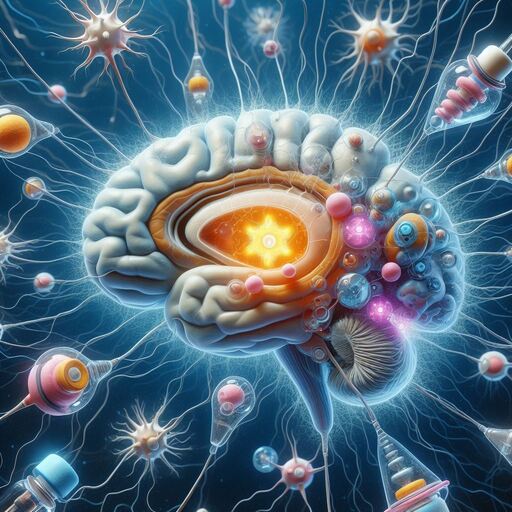The Neurotransmitter That Powers Memory and Learning Understanding the Role of Acetylcholine
The Neurotransmitter That Powers Memory and Learning Understanding the Role of Acetylcholine
Acetylcholine is a neurotransmitter that plays a crucial role in memory and learning. It is produced by neurons in the brain, particularly those in the hippocampus, which are involved in learning and memory processes.
The primary function of acetylcholine is to facilitate communication between neurons in the nervous system. When a neuron is activated, it releases acetylcholine molecules into the synaptic cleft, the small gap between neurons where they communicate with each other. These molecules bind to receptors on the surface of adjacent neurons, allowing them to receive and transmit signals.
Acetylcholine is involved in many different aspects of learning and memory, including encoding, consolidation, and retrieval. During encoding, new information is transferred from short-term to long-term memory. This process requires the release of acetylcholine, which helps to strengthen the connections between neurons and make them more resistant to degradation over time.
The Neurotransmitter That Powers Memory and Learning Understanding the Role of Acetylcholine
During consolidation, the newly encoded information is integrated into existing knowledge and stored in long-term memory. This process involves the strengthening of neural connections and the formation of new synapses. Acetylcholine plays an essential role in this process by facilitating the release of glutamate, another neurotransmitter that strengthens synaptic connections.
Finally, during retrieval, memories are accessed from long-term storage and brought into consciousness. This process involves the activation of specific neurons that were involved in encoding the memory. Acetylcholine is again released, allowing these neurons to communicate with each other and retrieve the stored information.
The Neurotransmitter That Powers Memory and Learning Understanding the Role of Acetylcholine
In addition to its role in learning and memory, acetylcholine also plays a critical role in other cognitive processes, such as attention, perception, and language. It is involved in the development of various neurodegenerative diseases, including Alzheimer’s disease, Parkinson’s disease, and multiple sclerosis, which can lead to impairments in memory and cognitive function.
Research on acetylcholine has led to the development of several drugs that target this neurotransmitter, such as cholinesterase inhibitors, nicotinic agonists, and muscarinic agonists. These drugs have been shown to improve memory and cognitive function in both healthy individuals and those with neurological disorders.
In conclusion, acetylcholine is a key neurotransmitter that plays a critical role in learning and memory. Its release facilitates communication between neurons in the nervous system, allowing new information to be encoded, consolidated, and retrieved from long-term memory storage. Further research on acetylcholine has led to the development of drugs that target this neurotransmitter, which have shown promise in improving cognitive function in various neurological disorders.
The Neurotransmitter That Powers Memory and Learning Understanding the Role of Acetylcholine

